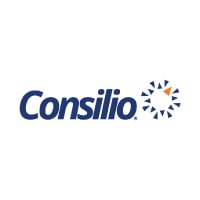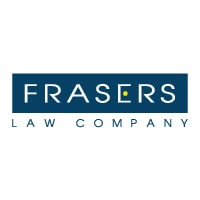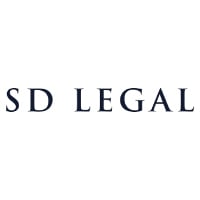
General counsel and chief compliance officer | TLC Industries







Ritankar Sahu
General counsel and chief compliance officer | TLC Industries
What are the most significant cases or transactions that you have recently been involved in?
I strive to offer mechanical precision to the Board and shareholders on risk financing strategy and design of internal controls in a highly stressed environment. I was hired by Goldman Sachs and the company founders to rehabilitate TLC Industries, amidst severe financial distress and operational challenges. The target is loss optimisation and stopping cashburn, taking into account trading volatilities based on real time operations as opposed to solely basing critical business decisions on accounting forecasts which are too forward looking. Absent financial stress testing considerations, there is a high risk of regulatory enforcement action which could lead to trading suspension.
Post joining in this environment, understanding my brief of aiding investors to bet on where the fulcrum security lies in TLC’s capital structure and deliver TLC, I had to formulate a battle plan to implement a proactive approach toward financial and operational strategy, with the objective of rescuing TLC from the brink of insolvency. The TLC legal team have persistently worked towards devising a demonstrably effective recovery plan, with the greatest impact on investor return. We have started executing the said plan, in close collaboration with management and shareholders. This involved working tirelessly to normalise operations, negotiating with creditors, restructure debt, optimise operational efficiencies and implement positive strategic initiatives that paved the way to becoming creditworthy again, with the end goal of pursuing profitability and sustainable growth. Our core mission is to preserve jobs, protect stakeholders’ interests and create a path toward a more stable and climate resilient future. Key in this endeavour has been the fostering of best resolution practices, including integrity, corporate governance and environmental and social policies and procedures.
The highlights since Q1 2024 have been to support the highly complex Northcote Elevation construction project in New Zealand. Off-site construction in Vietnam and installation on-site 9000 kms away in New Zealand is an extremely challenging task not only in terms of procurement but also in terms of delivering quality in terms of local construction code requirements. Given that this was being constructed over Covid and impact of natural calamities like Cyclone Gabrielle have impacted the construction timeline, thus adding to the layer of complexities. I offer legal, financial and project control services to the local team based on-site and am the lead interface with the project financier.
In the last few quarters, we have also started expanding our business to the United States and we have signed an exclusive distribution agreement for delivering off-site prefabricated modules to multiple locations across the US.
I also acted as general counsel to the company to effect the transfer of Goldman Sach’s Asset Management’s stake in TLC Group to ADM Capital, a credit fund investing in underbanked mid-market corporates.
Finally, I am in the process of managing the completion of group level audited financial statements and making a substantial case before the auditors to support management’s decision in preparing accounts on a going concern basis amidst solvency issues.
How do you see the general counsel role evolving over the next five-ten years?
GCs play a crucial role in prioritising among competing obligations, managing risk and providing clarity to ensure long-term sustainability of revenue streams. Amidst uncertainty, GCs must offer strategic clarity and deploy governance and control mechanisms for the company to set and execute strategy. GCs are no longer limited to a reactive role and often find themselves in the centre of disruption management. They need to pre-empt problems as decisions are being made. In terms of a corporation’s corporate governance/compliance program delivery, especially in markets with high corruption exposure, GCs can influence internal controls so that they are coherent, comprehensive and material to the business. GCs are capable of aligning organisational leaders around a shared definition of good corporate governance, scoping the program to focus on a core set of material issues, setting meaningful goals, and governing program execution toward success. An experienced GC’s knowledge of regulations and disclosure frameworks will ensure that corporate governance controls are consistent with industry expectations, stakeholder expectations and organisational capabilities. GCs need to train their minds and teams to operate in an environment which will never offer absolute clarity. The importance of GCs based on the aforementioned parameters have already given them a seat at the high table but the market cannot effectively say that this has happened across the board. In the next five to ten years, the number of GCs having a seat at the high table will exponentially increase.
The rising increase in legal costs have made the management of defence costs (as well as pre-emptive efforts to thwart disputes/compliance breaches) a pressing priority for many companies. Having said that, because businesses still view legal departments as cost centres, GCs need to demonstrate that the legal team is adding value to the business and not just consuming operational expenditure. GCs who run their offices like a business have more credibility at the Board level and will be favourably looked upon during budget cuts. Specifically for General Counsels who run distressed assets, the skill of recognising true ‘contingent’ liabilities and justifying ‘going concern assumptions’ are key. Accordingly, we will see more GC’s as Chief Operating Officers and Chief Financial Officers in the next decade.
Which recent political, economic or regulatory changes have impacted your work the most in recent years?
For my line of work which is quite niche and highly specialised and not having direct on the ground presence in OFAC-sanctioned states, pinpointing a specific political, economic or regulatory change which has impacted my work in recent years is difficult. Two broad heads are:
Corruption Risks amidst a distressed scenario
The US FCPA is the single biggest legislation affecting anti-corruption program compliance globally and given our manufacturing bases in transition economies, we are quite exposed. The application of such anti-corruption laws is not dependent upon the existence of any contractual arrangements that the company may have in place. To feed the messaging down and dissipate this through the ranks of employees that such laws exist and can affect the balance sheet is difficult, especially with limited resources. For a compliance program to be realistic and successful, it needs to pay due attention to the physiological and psychological aspects of human behaviour. This is what I try to keep a track of. The risk of people doing things they should not be doing is quite high for a variety of reasons. I tend not to focus too much on consensus building because otherwise, the compliance program enforcement will fail.
The focus on ESG from external stakeholders
In the current environment, external funding is very much linked to demonstrable ESG credentials. Experienced general counsel offers a balanced perspective on ESG considerations because their job involves making boardroom decisions and requires them to balance operating and risk-mitigating considerations amidst significant internal and external pressure from constituents to increase their organisation’s commitment to ESG. Whilst having a focussed ESG approach is crucial for delivering long term value to stakeholders and the wider society at large, the ‘E’ in ESG has come to predominate in ESG frameworks at the expense of other equally important factors. A significant problem industry-wide is the over-emphasis on ESG audits as opposed to actual commitment behind ESG initiatives. Accordingly, treating climate change as an auditing task will not create a ‘greener’ corporation. My job as General Counsel is to ensure that ESG goals are consistent with industry expectations, aggressive stakeholder expectations and organisational capabilities, thereby balancing contractual commitments, disclosure frameworks and applicable legislation.
General counsel and chief compliance officer | TLC Industries
General counsel and chief compliance officer | TLC Industries
General counsel and head of compliance | Maxpower Group
An engineering and construction projects sector legal expert, Ritankar Sahu also excels in anti-corruption investigations and management of distressed assets. He serves on the board of directors of the Maxpower...